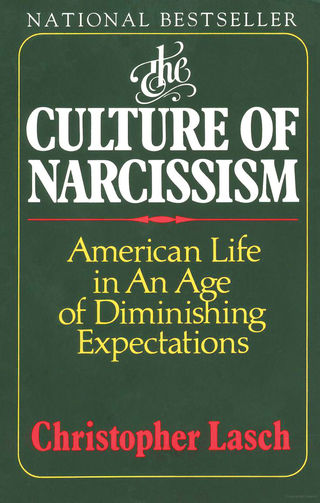Meet the Real Narcissists (They're Not What You Think)
The label is everywhere, but it's widely misused to describe anyone who offends us. The truth? A little narcissism is good for you. Even for those high in the trait, it's not all about vanity—new research may be uncovering a connection to depression.
By Rebecca Webber published September 5, 2016 - last reviewed on December 15, 2017
Last winter, a friend told me she was considering a divorce. "I really think my husband is a narcissist!" she said. More recently, over brunch, an acquaintance explained his family dynamics: "My aunt is such a narcissist, we're not sure why my uncle is with her."
The term narcissist has been widely deployed to describe not only a passel of difficult relatives and regretted exes, but also both nominees for president and the entire generation known as Millennials. Is narcissism really so widespread or on the rise in the general population?
A growing consensus among psychologists says no, it isn't. True pathological narcissism has always been rare and remains so: It affects an estimated 1 percent of the population, and that prevalence hasn't changed demonstrably since clinicians started measuring it. Most (but not all) putative narcissists today are innocent victims of an overused label. They are normal individuals with healthy egos who may also happen to indulge in the occasional selfie and talk about their accomplishments. They may even be a bit vain. But while we're diagnosing friends, relatives, and our kids' classmates, true pathological narcissists may be evading detection because most of us don't understand the many forms the condition may take.

What Narcissism Is (And Isn't)
Narcissism is a trait each of us exhibits to a greater or lesser degree. As it has become trait non grata, though, it's become necessary to add the qualifier "healthy" to specify the socially acceptable type of narcissism. "It is the capacity to see ourselves and others through rose-colored glasses," says psychologist Craig Malkin, a lecturer at Harvard Medical School and the author of Rethinking Narcissism. That can be beneficial, because it's helpful for all of us to feel a bit special. It fuels the confidence that allows us to take risks, like seeking a promotion or asking out an attractive stranger. But feeling too special can cause problems.
The Narcissistic Personality Inventory (NPI) is the most commonly used measure of the trait. Developed by Robert Raskin and Calvin S. Hall in 1979, it asks an individual to choose between pairs of statements that assess levels of modesty, assertiveness, inclination to lead, and willingness to manipulate others. Scores range from 0 to 40, with the average tending to fall in the low to mid-teens, depending on the group being tested. Those whose score is a standard deviation above that of their peers could reasonably be called narcissists. But a score anywhere along a wide range of the scale might still indicate a fundamentally healthy personality.
A diagnosis of pathological narcissism—which is a mental health disorder—involves different criteria. "Narcissistic Personality Disorder is an extreme manifestation of the trait," says developmental psychologist Eddie Brummelman, a fellow at Stanford University. The disorder can be diagnosed only by a mental health professional and is suspected when a person's narcissistic traits impair his or her daily functioning. The dysfunction might be related to identity or self-direction or cause friction in relationships due to problems with empathy and intimacy. It might also arise from pathological antagonism characterized by grandiosity and attention-seeking.
"Narcissism is a continuum, and the disorder sits at the very end," Brummelman says. The NPI can detect a person's level of narcissism, but additional real-life effects are necessary for a diagnosis of NPD.
"A personality disorder is a pervasive disturbance in a person's ability to manage his or her emotions, hold onto a stable sense of self and identity, and maintain healthy relationships in work, friendship, and love," Malkin says. "It's a matter of rigidity."
Someone who scores high on the NPI may indeed encounter occasional awkward or stressful social interactions, but for someone with NPD, Malkin says, "all the psychological defenses are working against healthy functioning" all the time.
The Many Faces of Narcissism
Popular culture has long relied on narcissistic traits to sketch problematic characters in sharp relief, from Dorian Gray to Don Draper. Gaston from Disney's Beauty and the Beast presents a silly but fairly apt model of grandiosity, probably the most recognizable feature of people high in narcissism and those with NPD. That brawny braggart sings, "As a specimen, yes, I'm intimidating!...As you see, I've got biceps to spare!...I'm especially good at expectorating!...And every last inch of me's covered in hair." Other narcissists may indeed perceive themselves as being in the top .1 percent in terms of talent, appearance, success, or all of the above.
But it's a mistake to assume that all narcissists will be such obvious preeners. "Not all narcissists care about looks or fame or money," Malkin says. "If you focus too much on the stereotype, you'll miss red flags that have nothing to do with vanity or greed."
For example, he suggests, some narcissists can be of the "communal" variety and actually devote their lives to helping others. They might even agree with such statements as "I'm the most helpful person I know," or "I will be known for the good deeds I have done." "Everyone has met grandiosely altruistic martyrs, self-sacrificing to the point where you can't stand to be in the room with them," Malkin says.
And there are highly introverted, or "vulnerable," narcissists. These individuals feel they are more temperamentally sensitive than others. They react poorly to even gentle criticism and need constant reassurance. The way they feel special might actually be negative: They may see themselves as the ugliest person at the party or feel like a misunderstood genius in a world that refuses to recognize their gifts.
What all subtypes of narcissist have in common, Malkin says, is "self-enhancement." Their thoughts, behaviors, and statements set them apart from others, and this feeling of distinction soothes them, because they're otherwise struggling with an unstable sense of self.
"Narcissists feel superior to others," Brummelman says, "but they are not necessarily satisfied with themselves as a person."

A Link to Depression
That struggle is at the core of a new conception of narcissism, one focused as much on depression as on grandiosity. "What people hypothesize is that narcissists are prone to higher highs and lower lows," says Seth Rosenthal, a research specialist at Yale's Program on Climate Change Communication, who did his doctoral research on narcissism. "They have this constant need to have their greatness verified by the world around them. When reality catches up with them, they may react by becoming depressed."
When a clear setback, such as a job loss or divorce or even a plan being scuttled, dents the carefully burnished self-image of a narcissistic individual, "this is a real attack on who he is," says Steven Huprich, the president-elect of the International Society for the Study of Personality Disorders and a professor at the University of Detroit Mercy. "Somebody he thought was going to trust him now very much dislikes him and is unwilling to put up with him anymore. Not surprisingly, he finds himself a little more down and depressed."
Of course, even people with healthy mental states struggle to deal with such dramatic turnarounds, Huprich says, "but for narcissists and narcissistic personalities, loss is really very difficult, because it suggests vulnerability and weakness. It suggests that you actually aren't immune to life's challenges and ups and downs."
The narcissist might also exhibit defensiveness and anger at such moments. "When they don't get the admiration they crave, they feel ashamed and lash out aggressively," Brummelman says. Others are unlikely to have the same sort of aggressive outbursts.
When a disappointment cuts through narcissists' thick layer of grandiosity and self-promotion and breaches their core, their resulting melancholy or boiling rage might motivate them to seek outside help. The Diagnostic and Statistical Manual of Mental Disorders (DSM-5), in fact, advises clinicians that individuals with NPD may present with a depressed mood. They rarely, however, come in seeking treatment for their narcissism. "I've never heard anyone say, 'I think I'm a narcissistic personality,'" Huprich says.
That doesn't mean narcissists are oblivious to their trait. A 2011 study in the Journal of Personality and Social Psychology—titled, with a wink, "You Probably Think This Paper's About You"—reported that narcissists did have insight into their personality: They described themselves as arrogant and knew that others saw them less positively than they saw themselves. But they generally didn't see this as a problem, and the debate continues over whether their grandiosity reflects an ironclad belief in their superiority or masks an underlying absence of self-confidence.
Over years of research, Huprich and colleagues have developed a concept that may be related to narcissism. They call it "malignant self-regard." It's a potential explanation for a constellation of not-quite clinically diagnosable personality disorders with overlapping features, including depressive, self-defeating, and masochistic personality styles.
Applied more widely to narcissistic subtypes, the theory suggests that deep-seated insecurity about the self and an exceedingly fragile sense of self-esteem can lead to maladaptive thoughts and behavior. Extraverted narcissists exhibit grandiose attention-seeking. Vulnerable narcissists, meanwhile, simply succumb to their damaged self-image. "They're not able to keep a coherent sense of who they are, so when they are attacked, instead of fighting back, which is the first reaction of the grandiose narcissist, they have an immediate reaction of sadness and depletion and depression," Huprich says.
People may develop malignant self-regard as children in the context of their relationships, Huprich proposes. These individuals may have had inconsistent experiences with their parents, related in particular to how success and achievement were recognized. Parents might have refused to acknowledge achievements or discouraged bragging about them, taking away the rose-colored glasses of healthy narcissism that could have eased the way as a child encountered new challenges in life.

Are They Made or Born?
Childhood experiences may play a major role, but most experts agree that both high levels of trait narcissism and NPD arise from the combined influences of nature and nurture that likely begin in the genes. "There are personality traits we come into the world with," says Kali Trzesniewski, a social-development psychologist at the University of California, Davis. One's environment can either weaken or strengthen those traits, "though there are always people who don't seem to react to their environment; they're just kind of resilient to it."
One twin study found that narcissism was a highly heritable trait. It can also manifest early in life: Another study found that dramatic, aggressive, attention-seeking preschoolers were more likely to end up as narcissistic adults. But parenting styles, the influence of other relationships, and one's social and cultural environments can encourage (or deter) its development.
Culture matters as well: Lifetime rates of NPD are about four times higher in notoriously competitive New York when compared with Iowa. But across the globe, cultures with a more collectivist tradition tend to put the group before the individual: "You're taught from a very early age that you have to pay attention to other people and put their needs before your own," says David Ludden, a professor of psychology at Georgia Gwinnett College in Lawrenceville, Georgia. "Of course, there are narcissists in Japan and China as well, but they don't show up quite the same way as here, where we say, 'Hey, it's OK for you to promote yourself.'"
High narcissism is not the same as high self-esteem. "They are typically only weakly related," says Brummelman, who has studied how parenting approaches can foster each. He and his colleagues found that when mothers and fathers are warm and affectionate, spending time with their kids and showing interest in their activities, "the children gradually internalize the belief that they are worthy individuals—the very core of self-esteem—and this doesn't spill over into narcissism," he says. By contrast, parental overvaluation—placing children on a pedestal—does promote narcissistic traits. To avoid raising narcissists, it's better for parents to say to children, "You did a good job," rather than, "You deserved to win" or "Why weren't you as good as she was?"
An early pronounced focus on success can lead to an insecure attachment between parent and child, as a son or daughter learns that a mother's or father's love and attention are available only if high expectations are met. Children who feel they can never measure up can move into adulthood with a fragile ego and latch onto narcissistic thoughts and behaviors to shore it up.
Parents who raise narcissists, Ludden says, "present to their kids a world where everything is a competition: There are winners and losers and you've got to be a winner." A healthier approach would be to teach children that "they don't have to be the best, just the best that they can be."
Mislabeled Millennials

No matter how hard parents try to steer children away from all-or-nothing competition, many eventually have to vie for college admission, internships, and jobs. Shrinking opportunities may be what's contributing to a perception of raging narcissism among young adults.
"When you set up highly competitive environments, you're really encouraging people who are more ruthless," Ludden says. "That's where the narcissists are going to flourish, because they are willing to do more to get ahead than the average person would. We've set up a society that encourages the narcissist as opposed to one where that kind of behavior is discouraged."
And so young people polish their résumés, update their LinkedIn profiles, brand themselves online, and of course, flood social media with carefully posed, cropped, and filtered selfies. "We have a lot more opportunities to express our narcissistic tendencies than we once did," Ludden says. Many young people who might have come across as quite modest in another time or milieu may just be trying to keep up and may deserve more of a pass for it.
"Our norms have changed," Trzesniewski says. "If you took somebody from the '60s and put them in today's society, would they look any different? I would argue that they would be the same." A better question, she suggests, is "Why is there such a huge trend to be negative about the next generation?" This tendency goes back to the time of Socrates, she argues: "Older generations get fearful when younger ones are doing things they don't fully understand."
The question of whether narcissism—the trait or the disorder—is on the rise is a subject of fierce debate in the research community. For example, while NPI scores have risen across generations, they have not done so as much as might be expected if a major cultural shift had taken place. Experts also disagree on whether it's fair to make cross-generational comparisons: Would the Greatest Generation have become as notable for its reticence if soldiers had been able to tweet from the European or Pacific theater?
What is clear is that people are always more narcissistic when they're younger. "Everyone is more narcissistic at 18, 19, or 20 than they are at 40," Trzesniewski says.
It's a logical developmental trend: Young adulthood is a time when people are largely free of responsibilities, either to their family of origin or the family they will eventually establish. "It's a self-absorbed stage of life, when you're trying to figure out who you are personally and professionally," says Emily Bianchi, an assistant professor of organization and management at Emory University. Her research shows that generations exposed to hardships, such as recessions, tend to end up less narcissistic than those that face fewer large-scale challenges. "Recessions seem to leave a humbling imprint on people who were young adults at the time," she says.
That may mean that Millennials—still struggling to establish themselves in a slowly recovering economy—might actually end up far less narcissistic than pre-2008 data would suggest.
On the World Stage
History offers many examples of figures presumed to have had narcissistic personality disorder. "A Napoleon complex is essentially being narcissistic," Rosenthal says. "And if you look at video of Mussolini, he has a dominant, chest-thumping body language, a very physical manifestation of what we might think of as narcissism."
Apparent self-assurance can propel a narcissist into power. "If you're a great talker and people gravitate toward you, then your ego might drive you to seek that out," Rosenthal says.
At first, people high in narcissism, and those with NPD, can be quite charming, easily attracting friends, lovers, and voters. Over time, though, their self-focus can become insufferable. People high on the narcissistic scale tend to annoy friends and loved ones, at least occasionally, while those with NPD may ultimately send them fleeing, serially costing themselves jobs, friends, and spouses. "People figure out that this isn't so great," Rosenthal says.
However, many people with healthy levels of narcissism are wrongly labeled as narcissists when interpersonal tensions rise. "Whenever couples are in high conflict, they become more self-centered," Malkin says. "Rage makes narcissists of us all." And when we feel hurt or angry, we tend to focus on our own psychic needs and fail to show empathy towards others—both classic narcissistic behaviors. After a parent-teenager conflict or a feud between spouses, the term narcissist might be thrown out, even when it never seemed applicable before.
Another reason partners may label each other as narcissistic stems from how we pair off in the first place, a narcissist being more likely to attract what Malkin calls an "echoist," someone who suffers from a lack of normal self-enhancement. "They fear being a burden, so they can easily end up partnering with their opposite and getting stuck in the relationship."
One clue that a potential partner might be a narcissist: He or she claims to be "great at everything—except relationships," Malkin says. Narcissists might announce that they don't need anybody. They'll admit to preferring a trophy spouse to true love. And they're unable to do the fundamental repair work every relationship demands.

Sparks of Empathy?
The impaired-empathy aspect of Narcissistic Personality Disorder can confuse those who haven't been trained to diagnose it. A complete lack of empathy would identify a psychopathic personality, but people high in narcissism, or with NPD, exhibit flashes of compassion. "The higher functioning narcissists have the capacity and ability to empathize," Huprich says, but ultimately their own needs come first. "The empathy is often shallow and short-lived. They'll acknowledge that someone else is suffering, but that will quickly dissipate so they can get back to their own self-promotion."
Within a relationship, narcissists might be able to show empathy until something upsetting occurs and they reflexively move to soothe themselves by putting a partner down. "Even a partner is worth sacrificing if it makes them feel superior," Malkin says
If a fragile self is the true underpinning of narcissism, one way to strengthen it is with self-compassion. A survey of more than 3,000 people showed that self-compassion led to more stable feelings of self-worth, as opposed to self-esteem, which has a stronger association with narcissistic traits. An emerging body of research suggests that "you can unblock the blocked empathy of people who are narcissistic by constantly focusing them on relationships, community, and connection to others," Malkin says. "It makes sense: Unhealthy narcissism is a way of coping with attachment insecurity. By increasing that security, narcissism drops."
That may be the most promising takeaway from the recent research on narcissism. Malkin says: "We used to think it couldn't be changed."
A Brief Cultural History of Narcissism

In "DSM-5 Girlfriends," a sketch from the latest season of Inside Amy Schumer, a group of women gather to talk about recent relationships gone bad, each diagnosing her ex with increasingly pathological disorders, and then attacking the one woman who suggests they might be off base. Slinging personality disorders in casual conversation has never been more in vogue. It wasn't always this way.
Narcissism was once a term used mostly in academic research and clinical diagnosis. Then, in 1979, researchers developed the Narcissistic Personality Index, cultural historian Christopher Lasch published The Culture of Narcissism, and the term went mainstream. "In grad school, we talked about our narcissism freely," psychologist Craig Malkin says. In 2006, with Jean Twenge's book, Generation Me, the idea that narcissism was on the rise nationwide, and might be rampant among the Millennial generation in particular, entered the public consciousness.

Now some researchers are debunking claims of mass narcissism, expressing concern that a label meant to refer to a serious clinical disorder is being wielded after every breakup, family dispute, or selfie encounter. "We might throw around the term too much when someone is just a little bit of a show-off or ends up in charge," psychological researcher Seth Rosenthal says. Such individuals may have personality traits that seem similar to narcissism, but "to really qualify as a narcissist, they have to have certain other motivations and behaviors."
Most concerning for some experts is the thought of a cultural rejection of healthy expressions of confidence or self-esteem. "Self-esteem is healthy," psychologist David Ludden says. "Narcissism is something different."
Submit your response to this story to letters@psychologytoday.com. If you would like us to consider your letter for publication, please include your name, city, and state. Letters may be edited for length and clarity.
For more stories like this one, subscribe to Psychology Today, where this piece originally appeared.
Facebook image: conrado/Shutterstock
